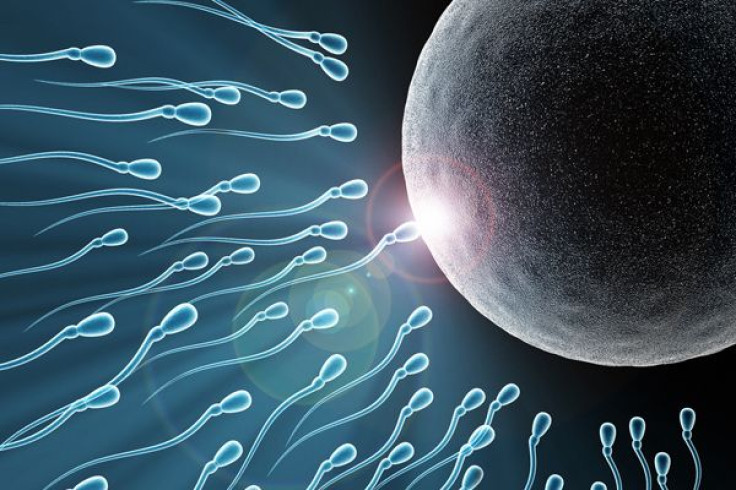Seminal Fluid, Not Just Sperm, Plays A Role In The Fetus' Health, Including Obesity And Diabetes

Many couples who try to become pregnant think the man’s job begins and ends with his sperm, but new research suggests a man’s contribution to his child is not limited to the egg and sperm relationship. A recent study out of the Robinson Institute at the University of Adelaide found that a man’s seminal fluid and its interaction with the woman’s reproductive tract can have a significant effect on a child’s health.
"We've discovered that it’s not just the sperm, but the entire composition of the seminal fluid which has an important role to play in establishing the offspring's future health, and this is most notably seen in male offspring,” lead researcher and Director of the Robinson Institute, Professor Sarah Robertson said in a statement.
Robertson and her colleagues from the Australian university used two groups of lab-grown mice to study the effect of seminal fluid’s interaction with the reproductive tract on fetal development and health after birth. Before mating with female mice, the first group of male mice had their seminal vesicle gland removed to halt the production of seminal fluid. The second group of mice was observed mating under regular conditions with no intervention from the research team.
Although the offspring produced by the male group of mice who had their seminal vesicle gland were of low birth weight, soon after puberty they began to gain weight at a rapid pace and were often plagued by obesity. The health issues observed with the offspring of mice who had their seminal vesicle removed continued to add up, including type 2 diabetes, hypertension, slowed metabolism, and low glucose tolerance.
"We know from several studies that obesity in males can be tracked back to the father's contribution at the moment of conception,” Robertson explained. “But now we're starting to understand the very complex signals and information being transmitted by the seminal fluid, and it turns out that seminal fluid and female tissues interact in surprising ways."
Upon further investigation, researchers identified specific signals in seminal fluid that interacted with the female’s reproductive tract and played a major role in both conception and the offspring’s metabolic health. Not only did signaling from seminal fluid play a role in stimulating the female’s reproductive tract, but it was also an important part of maintaining sperm function.
"If the seminal fluid is of poor quality, it affects the female's capacity to support an embryo. If the embryo manages to survive despite the poor quality seminal fluid, the metabolism of the resulting fetus will be permanently altered, making it more likely to develop a syndrome of metabolic disorders including obesity, high blood pressure, and glucose intolerance after birth,” Robertson said.
In terms of infertility, around a quarter of mice from the seminal-deficient group were able to get pregnant and fewer offspring were reported than in normal mice pregnancies, ABC Science reported. Male offspring from seminal-deficient nice were at a higher risk of suffering from poor fetal growth and development. The research team is looking to replicate their data for human trials, in hope of resolving certain health issues faced by children born through in vitro fertilization (IVF).
"It's clear to us now that the seminal fluid produces signals that the embryo absolutely needs for the best possible start to life. Assisted reproductive techniques, as good as they are today, cannot currently replicate such complexity. Therefore, it’s helpful if we can find other ways to encourage couples to take care of their reproductive health, including men as well as women,” Robertson added.
Source: Bromfield J, Schjenken J, Chin P, Care A, Jasper M, Robertson S. Maternal tract factors contribute to paternal seminal fluid impact on metabolic phenotype in offspring. Proceedings of the National Academy of Sciences. 2014.



























